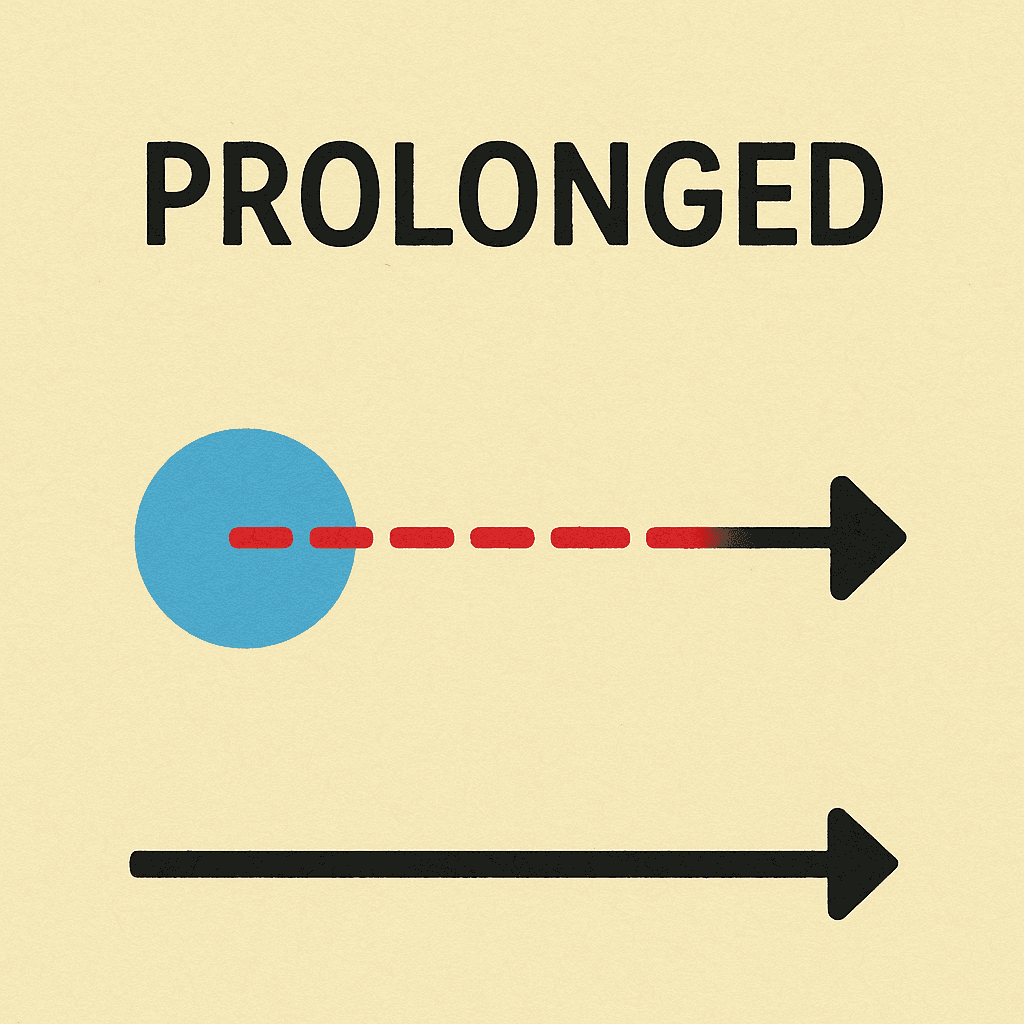Meaning
Prolonged means something that lasts for a long time or continues longer than expected or usual. It often carries a sense of being extended unnecessarily or undesirably long.
Grammar and Usage
- Part of speech: Adjective
- Typically used before a noun (e.g., prolonged illness, prolonged silence).
- Often implies an unpleasant or inconvenient duration.
Sentence structure patterns:
- "prolonged + noun" (e.g., prolonged delay, prolonged exposure)
Common Phrases
- prolonged illness – being sick for an extended time
- prolonged exposure – being exposed to something for too long
- prolonged silence – a silence lasting longer than comfortable
- prolonged negotiations – discussions that take much longer than expected
Collocations
- prolonged absence
- prolonged stress
- prolonged drought
- prolonged applause
- prolonged war
Examples
- She suffered from a prolonged illness that kept her in bed for months.
- The region experienced a prolonged drought, leading to water shortages.
- After a prolonged silence, he finally answered the question.
- The meeting ended after prolonged negotiations between both sides.
- Prolonged exposure to the sun can damage your skin.
- His prolonged absence from school worried his teachers.
- The company went through a prolonged period of decline before recovering.
- The film was criticized for its prolonged scenes that slowed down the story.
Synonyms or Related
- extended
- lengthy
- drawn-out
- prolongedly (adverb form, rare)
- sustained
